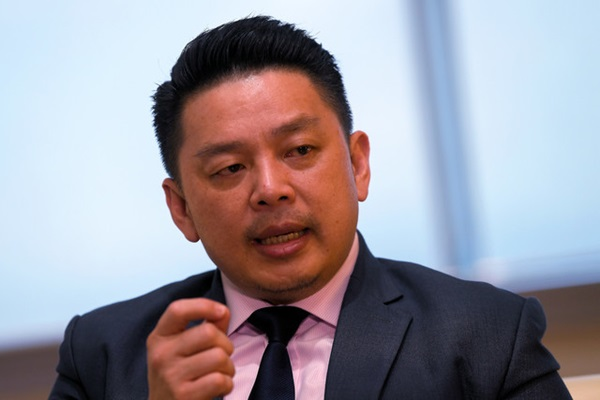News
Malaysia committed to key role as biofuel technology player
KUALA LUMPUR, May 25 (Bernama) -- As one the world’s major palm oil producers, Malaysia will continue to play a key role in ensuring that the commodity remains a sustainable and eco-friendly fuel replacement for world markets.
Minister of International Trade and Industry (MITI) Datuk Darell Leiking said in a statement here, palm oil was a viable option to reducing the country’s dependency on fossil fuels, as it had tremendous potential as a renewable energy (RE) source.
“As the largest exporter and second largest producer of the palm oil in the world, we sit in a position of ensuring this commodity evolves into an industry that brings much benefits to global market, in particular, the energy and transportation ecosystem,” he added.
Biofuels have recently received significant attention as a viable replacement for fossil fuels.
Apart from the potential as a leading fossil fuel replacement, biofuels are sourced from planted crops, allowing its production to be planned, harvested and renewed sustainably.
This is in comparison to fossil fuels that take millions of years to form and are becoming increasingly scarce.
Furthermore, biofuels have carbon-neutral properties, as planted sources of the fuel consume carbon dioxide as they grow, offsetting the carbon footprint during the process.
Darell further explained that while there had been opposition to the current practices of planting oil palm recently, there was demand and potential for the sector to emerge as an important player in meeting the needs of the energy and transportation sectors.
“Malaysia is equipped with the necessary infrastructure and market size to improve the quality and production of palm-based energy products,” he said.
He also said apart from strong industry support for biodiesel, agencies such as the Malaysia Palm Oil Board, Malaysia Automotive Robotics and IoT Institute and SIRIM Bhd had the technological capabilities towards elevating palm oil to become a leading contender for RE globally.
Malaysia introduced B10 biodiesel to the domestic transportation market in December 2018, increasing its blend from seven per cent (B7 Biodiesel) to 10 per cent.
Meanwhile, the National Automotive Policy (NAP), which is currently undergoing review, is expected to continue its inclusion of biodiesel development as an important agenda to the nation’s transportation energy efficiency plan, to allow for a higher percentage of biodiesel blends over the next few decades.
The government, through MITI and the Primary Industries Ministry (MPI), aims to introduce B20 biodiesel by 2020.
At the same time, the MPI is also collaborating with MITI to include a “B20/B30-ready” specification for vehicles in the NAP review.
-- BERNAMA
Other News
Sarawak Lepasi Sasaran Kapasiti Gabungan Tenaga Boleh Baharu Tahun Ini - Abang Johari

Oleh Nur Ashikin Abdul Aziz
SINGAPURA, 21 Okt (Bernama) -- Sarawak mencapai 62 peratus sasaran campuran kapasiti tenaga boleh baharu (TBB) tahun ini, melepasi sasaran 60 peratus yang digariskan dalam Strategi Pembangunan Pasca COVID-19 (PCDS) 2030.
Sarawak Pacu Pertumbuhan Tenaga Boleh Diperbaharui Untuk Manfaat ASEAN - Premier

SINGAPURA, 21 Okt (Bernama) -- Sarawak komited menyokong peralihan tenaga boleh diperbaharui di Asia Tenggara dengan memanfaatkan potensinya sebagai "Bateri ASEAN," yang akan membekalkan tenaga bersih menerusi sambungan Grid Kuasa Borneo dan ASEAN.
Belanjawan 2025 Percepat Peralihan Kepada Tenaga Bersih - Solarvest

KUALA LUMPUR, 19 Okt (Bernama) -- Belanjawan 2025 merupakan satu langkah ke arah mempercepat peralihan kepada tenaga bersih di Malaysia, kata Solarvest Holdings Bhd.
© 2025 BERNAMA. All Rights Reserved.
Disclaimer | Privacy Policy | Security Policy This material may not be published, broadcast,
rewritten or redistributed in any form except with the prior written permission of BERNAMA.
Contact us :
General [ +603-2693 9933, helpdesk@bernama.com ]
Product/Service Enquiries [ +603-2050 4466, digitalsales@bernama.com ]
